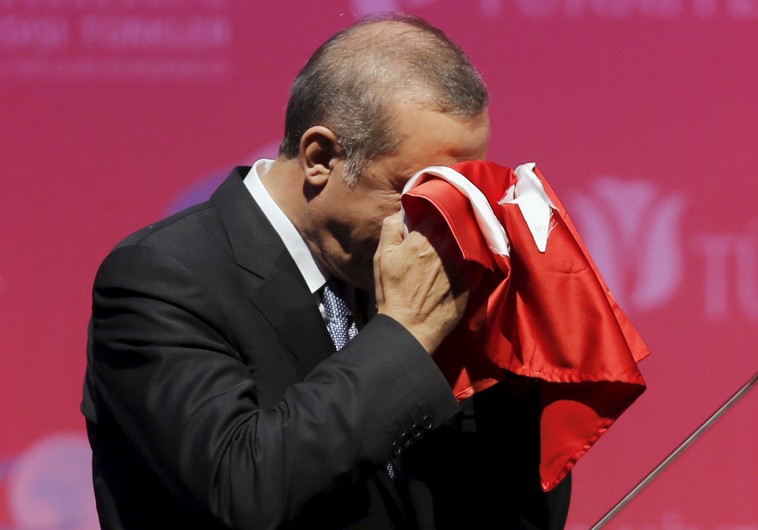Erdogan loses his chance to become Turkey’s Vladimir Putin
Erdogan’s hope of persuading parliament to change the constitution and grant himself Vladimir Putin-like unchecked powers has gone up in smoke.
 Turkey's President Recep Tayyip Erdogan kisses a handmade Turkish flag in Ankara
Turkey's President Recep Tayyip Erdogan kisses a handmade Turkish flag in Ankara